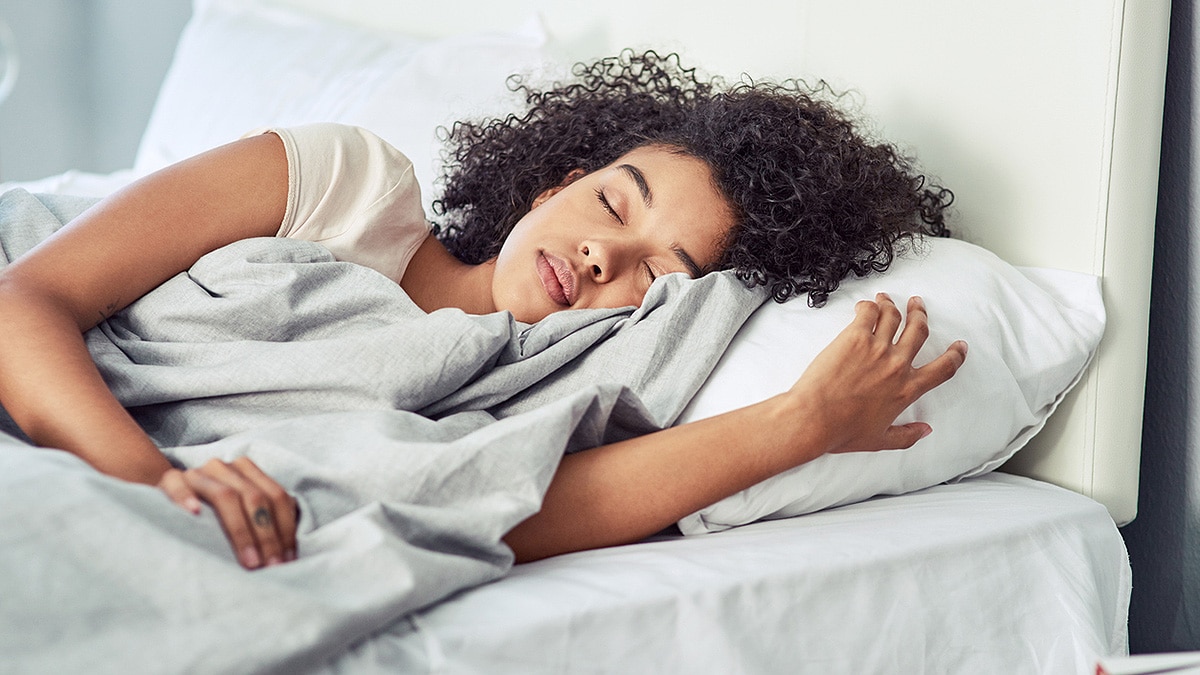Key points
- Good sleep is essential for our health and emotional well-being.
- Getting enough sleep and good sleep quality are essential for healthy sleep.
- The amount of sleep you need changes as you age.
- Talk to your healthcare provider if you have problems sleeping.

Getting enough sleep
The daily recommended hours of sleep you need changes as you age.
Age Group
Age
Sleep Recommended Daily
Health benefits of sleep
Getting enough sleep can help you:
- Get sick less often.
- Stay at a healthy weight.
- Reduce stress and improve your mood.
- Improve your heart health and metabolism.
- Lower your risk of chronic conditions like:
- Type 2 diabetes.
- Heart disease.
- High blood pressure.
- Stroke.
- Type 2 diabetes.
- Lessen the risk of motor vehicle crashes and related injury or death.
- Improve your attention and memory to better perform daily activities.
What to do
Better sleep habits can help you get a good night's sleep. Habits that can improve your sleep include:
- Going to bed and getting up at the same time every day.
- Keeping your bedroom quiet, relaxing, and at a cool temperature.
- Turning off electronic devices at least 30 minutes before bedtime.
- Avoiding large meals and alcohol before bedtime.
- Avoiding caffeine in the afternoon or evening.
- Exercising regularly and maintaining a healthy diet.
Sleep quality
Quality sleep means you are getting uninterrupted and refreshing sleep. Getting quality sleep is not just about how many hours you sleep, but how well you sleep.
Signs of poor sleep quality include:
- Trouble falling asleep.
- Repeatedly waking up during the night.
- Feeling sleepy or tired even after getting enough sleep.
Sleep disorders
Some people may have health conditions that prevent them from getting enough quality sleep, no matter how hard they try. These conditions are called sleep disorders.
Common sleep disorders
Common sleep disorders include:
Management
Talk to your healthcare provider if you regularly have problems sleeping or notice signs or symptoms of common sleep disorders.
Your provider can run tests, including sleep studies, to tell if you have a sleep disorder.
Keeping a sleep diary
Your provider may have you keep a diary of your sleep habits to better understand what's going on.
Your sleep diary should include when you:
- Go to bed.
- Wake up during the night.
- Wake up in the morning.
- Take naps.
- Exercise.
- Drink alcohol or caffeinated drinks.
- Take medications.
What CDC is doing
- CDC monitors national and state trends on not getting enough sleep among:
- CDC's PLACES has local estimates on adults not getting enough sleep.
- Hirshkowitz M, Whiton K, Albert SM, et al. The National Sleep Foundation's sleep time duration recommendations: methodology and results summary. Sleep Health. 2015;1(1):40–43.
- Paruthi S, Brooks LJ, D'Ambrosio C, et al. Recommended amount of sleep for pediatric populations: a consensus statement of the American Academy of Sleep Medicine. J Clin Sleep Med. 2016;12(6):785–786.
- Watson NF, Badr MS, Belenky G, et al. Recommended amount of sleep for a healthy adult: a joint consensus statement of the American Academy of Sleep Medicine and Sleep Research Society. Sleep. 2015;38(6):843–844.
